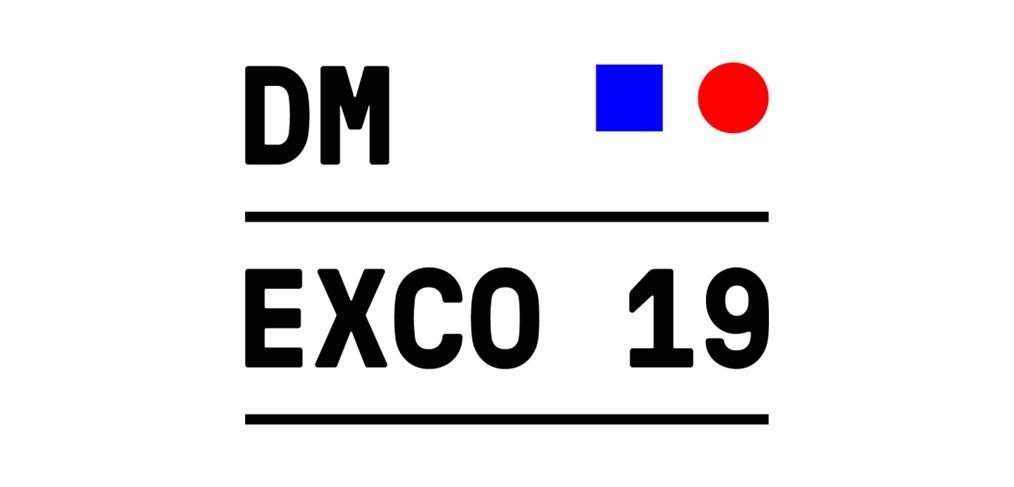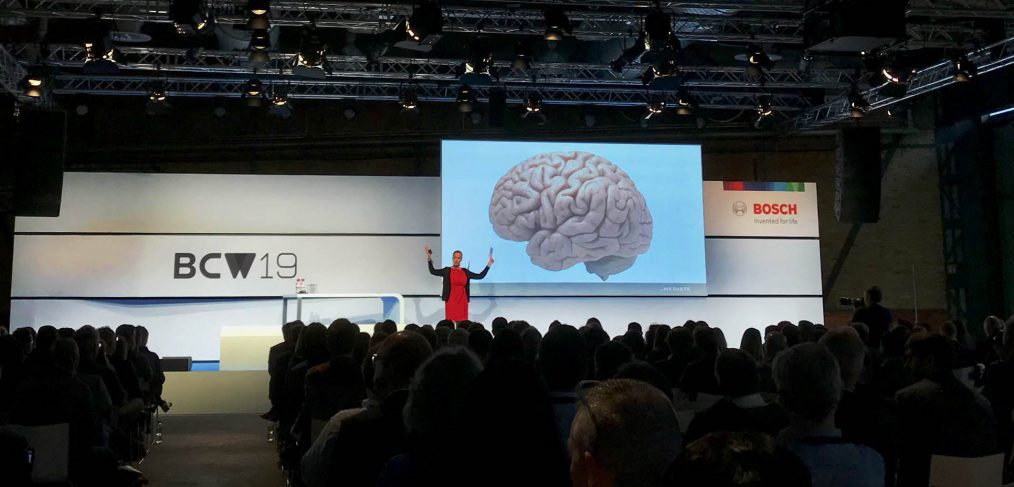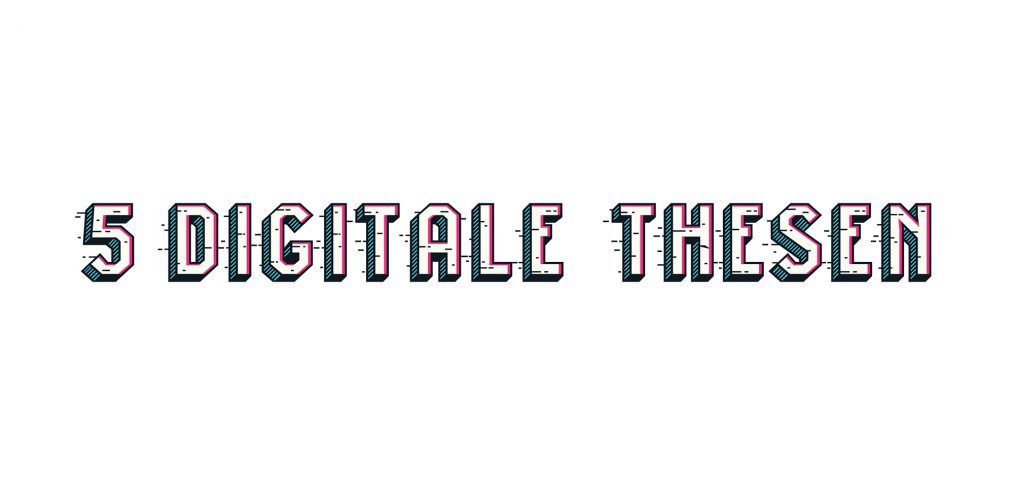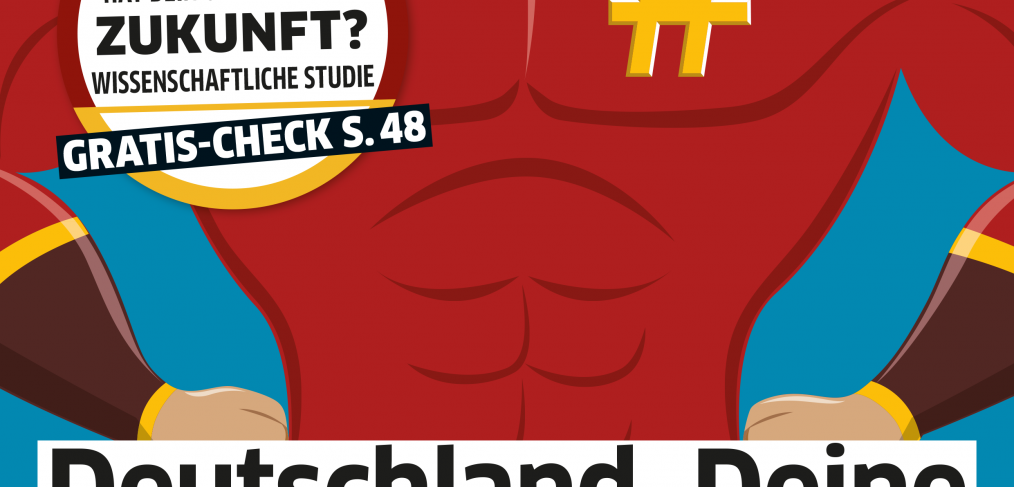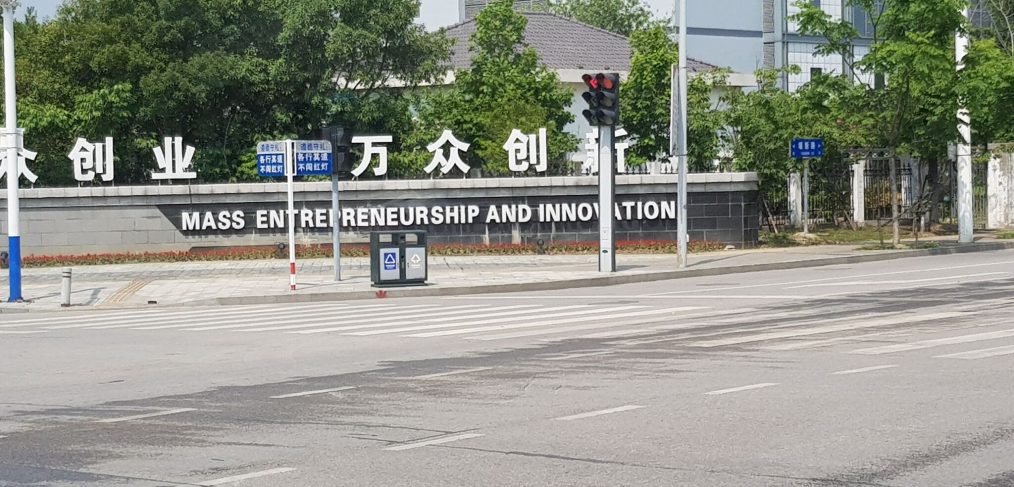Imagine, if we all worked together to create the greatest value for our respective customers. If we were very close to their needs, by using relevant data and seamlessly employing the latest, really useful technology? Wouldn’t that be wonderful?
With these words, I opened my break out session on cultural change at Bosch Connected World 2019 in May. My (quite ambitious) goal for the session was to find out what ingredients it takes for companies to mix their customized sauce for cultural change. In order to do just that, I welcomed experienced guests, i.a. from 3M, Daimler, Phoenix Contact and Bosch, to hear about holistic corporate concepts, pragmatic transformation hacks and even change initiatives that did not work.
But first: Why is cultural change so difficult? To change a company’s culture, you need to change human behaviour – and we all know how difficult that is … But just lately, we learned from studies why this is the case and what can be done about it. In a nutshell: In our brain, neural pathways are created, based on our habits and behaviors. These neural pathways consist of neurons that are connected by dendrites – which looks a bit like a tree with large branches and smaller roots. The number of dendrites increase with the frequency a behavior is performed. In this manner, the pathways are reinforced up to a point of habit formation.
The good news is: Even if it is hard, you can yourself form new neural pathways if and every time you perform new activities.
And you can even reinforce this effect if you take into account the latest neuroscientific findings. So recently, we spiced up our traditional business consultant and change catalyst toolkit with some neuroscientific hacks for behavior change.
So for example,
- We promote new digital tools to employees always with a clear communication of their respective upside for the private life of the employees. Nothing beats personal relevance when it comes to activate the lazy brain!
- We raise the motivation and stickiness by jointly visualizing the desirable future state in a very detailed manner, involving many sensory aspects – for example as a start to an otherwise traditional workshop. This then connects the new behavior learned in the workshop to additional areas of the brain accounting for the different senses involved in the mental image.
- We educate extensively, because only if one has full knowledge about new methods, one becomes aware of encrusted and sometimes even obsolete current behavior. And if you pay attention to this, you enlist the power of the prefrontal cortex to override default patterns and thereby change your behavior.
- We focus on repetition: Every time you do a new thing, you weaken the old habit. Important elements for this are constant reminders, nudges, etc. Step by step, new ways of dealing are perpetuated in a daily routine.
- We transfer the hook cycle used in the creation of addictive technology onto designing our offline Digital Boost programs. Setting internal and external triggers, making the execution of the desired action as easy as possible, reward it extensively and make the employee invest a bit so that he/she has a higher stake in continuing the desired behavior.
- We work longer-term: Expect that it takes at least 3-6 months until a new habit is formed, which then is aggregated into a change in corporate culture.

So, to sum it up:
- Cultural change needs behavior change
- Behavior change requires re-wiring your brain
- There are certain hacks you can use when designing your transformation initiatives to make this re-wiring more likely.
To find out what other ingredients to the secret sauce of cultural change can be, we will cover the contributions of my breakout session participants within the next posts starting with Filiz Albrecht, Executive Vice President HR of Bosch. Stay tuned to find out their customized recipe!
In the meantime: Get to know _MEDIATE’s programmes accelerating cultural change such as our Digital Boost!

